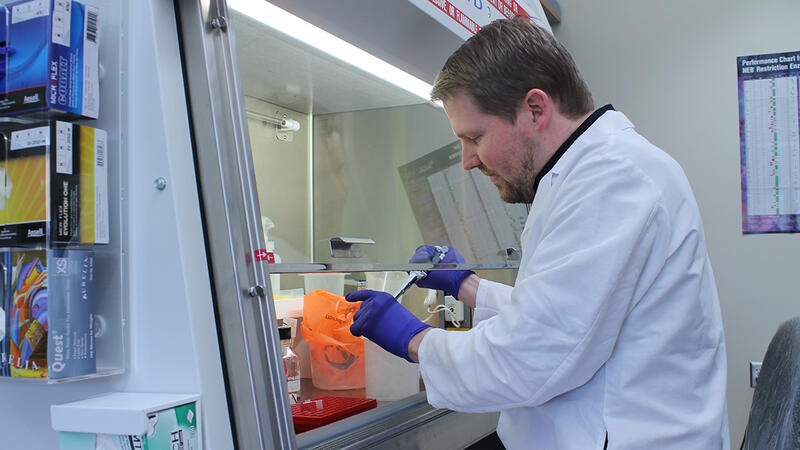News
Genetic toolkits boost biofuel production
Jack Newman, chief science officer at Amyris, Inc. answers GLBRC's questions about his recent Presidential Green Chemistry Award, the future of biofuels, and his thoughts on ethical bioengineering.
By now most of us are accustomed to filling our cars with fuels that are part ethanol, and we know that corn is not only in our tortillas but also in our gas tanks. Great Lakes Bioenergy Research Center (GLBRC) researchers, however, are moving beyond corn and other first-generation biofuel feedstocks in an attempt to fill our tanks with environmentally sustainable biofuels.
MADISON, Wis. – The Great Lakes Bioenergy Research Center (GLBRC), one of three bioenergy research centers established in 2007 by the U.S. Department of Energy (DOE), recently celebrated the filing of its 100th patent application.
Technology package covers unconventional strains for the production of biofuel, renewable chemicals
MADISON, Wis. – Xylome Corporation has signed licensing and equity agreements with the Wisconsin Alumni Research Foundation (WARF) to develop and market unconventional yeasts with the power to transform tough biomass into sustainable fuels and chemicals.
Many people appreciate the benefits of yeast fermentation when they sip a glass of cold beer or bite into a freshly baked baguette.
Bioenergy policies based strictly on economic or energy considerations that lack attention to biodiversity impacts will likely have serious consequences for the conservation of wild bees and their pollination services, according to a newly published scientific journal paper.
Three Great Lakes Bioenergy Research Center (GLBRC) researchers are recipients of project funding from the U.S. Department of Energy and the Department of Agriculture’s Plant Feedstock Genomics for Bioenergy program, which recently awarded $12.6 million to scientific projects aimed at accelerating the use of plant tissue in bioenergy and biofuels.
CONTACT: Shannon Stahl, 608-265-6288, stahl@chem.wisc.edu
In an article entitled “Cellulose Breakdown: Investigations into making liquid fuel from plant biomass,” GLBRC education and outreach director, John Greenler, coordinator Leith Nye, and the Wisconsin Alumni Research Foundation’s outreach and education manager, Travis Tangen, describe a lab designed to
Traveling across the American Midwest, where corn is both a major commodity and a prominent feature of the rural landscape, it’s easy to take the corn plant for granted.





